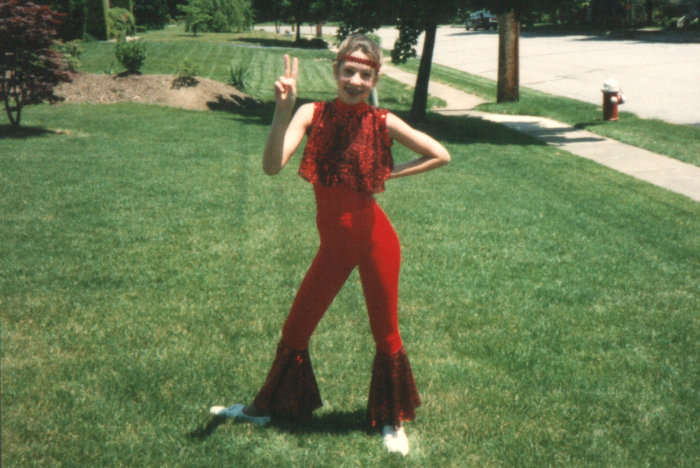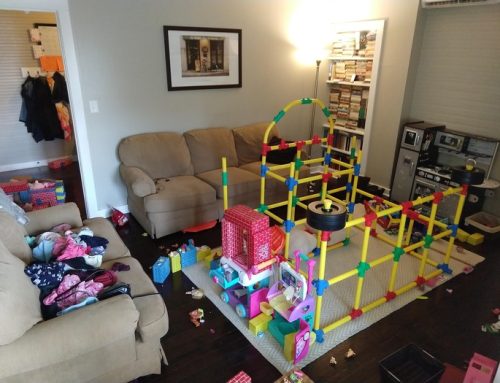When I was younger, it used to make me so mad when I’d hear trusted coaches, therapists, and mentors say, “Just love yourself.” They meant well, but those words were not enough for me!
At the time, “just love yourself” was too abstract, too much of a foreign concept. What did it mean? What did that look like in real time?
As a childhood cult survivor, I needed more guidance than the average bear in this area. When I was asking about how to forgive yourself for past mistakes, I wanted an exact process. I was hungry for practical instructions and step by step guidance.
Thankfully, when I was in my early thirties I had the opportunity to spend a month living and working alongside some of the very best counselors in the field of addiction recovery.
They taught me exactly how to bring love to the parts of myself that were hurting. And that’s what I’m going to do in this post.
But first, let me reassure you – if figuring out how to forgive yourself for past mistakes has been tough for you, you’re not alone.
So many of the people I work with in coaching tell me that no matter what they accomplish, there’s still this bottomless, falling-out feeling of fear within them. There’s an inner void where a foundation ought to be.
If you have this experience, it isn’t your fault, and there’s nothing wrong with you. It just means that early on, you didn’t get what you needed to build a firm foundation of confidence.
The good news is, you can build it with emotional work. And it can happen pretty quickly! To quote one of my coaching clients, “I still go up and down, but I don’t have the same pit in my stomach anymore. There’s a safety net of OK under there!”
Having that deep down safety net of OK changes everything. And one of the foundational pieces of that safety net is the ability to forgive yourself. Before we dive into the process, let me address three common objections that might be coming up for you.
3 Common Objections to Self-Forgiveness
Objection #1: Self-forgiveness might make me “soft,” with no motivation to achieve!
Actually, there’s research indicating that positive encouragement works better than criticism when it comes to human performance. To quote the linked article:
Richard Boyatzis, a psychologist at Case Western Reserve University explained that focusing on what someone needs to do to “fix” themselves will effectively close them down to new possibilities or ideas.
In other words: Putting your attention on changing your perfectionism actually makes you less creative, and (presumably) less of a high performer! If you truly want to succeed, practice addressing yourself with encouragement and empathy.
Objection #2: Just give me a list of tasks, to-dos, and tactics to help me, not this emotional work stuff.
Yes, tasks and tactics have their place. Thinking strategically is great, especially when we’re facing challenging circumstances. But most of the time, the biggest challenge we’re facing isn’t circumstantial. Rather, the biggest challenge is facing the ongoing fear we’ve never addressed.
This is true for most of the people I work with in coaching. When we get to the bedrock level of truth, they tell me that what’s REALLY holding them back is unresolved fear.
This fear has been with them since they were small. This fear is what causes perfectionism!
This unresolved fear is costing them massive amounts of time and energy. It keeps them from creating and sharing their work. It makes them live as toned-down versions of themselves.
Here are some ways I see that unresolved fear show up in my client’s lives:
- Struggling to make decisions; spending days, weeks, or months going back and forth over different options. Should your kid do ballet or soccer? Should you buy that sweater or not?
- Instead of simply relaxing and watching a movie, spending a long time researching potential movies, watching trailers and reading reviews
- Feeling stressed out ordering at restaurants, pressuring yourself to pick the “perfect” dish
- Feeling false guilt spending money, because you don’t feel like you have the right to do what you want with your own money!
Now, these are smart people. If there was a way to reason themselves out of their fear, they would have found it by now. The thing is, they can’t think their way out of emotional-level issues. None of us can.
We need a different set of tools to resolve that old fear and actually enjoy our freedom.
We can’t solve an emotional-level problem by working purely on the physical level. It’s ineffective. What actually works is addressing the problem on the level at which it exists.
Objection #3: Who am I to offer myself forgiveness? Doesn’t that need to come from a Higher Power, from God?
This might sound radical, but if you believe that God is Unconditional Love (which is biblical, by the way), then by definition there is no judgment coming at you from that Love.
The definition of unconditional is “absolute; unqualified.” Ergo, there is no room in Unconditional Love for judgment! It’s 100 percent pure Love and 0 percent judgment.
You do not need to ask God (or the universe, or spirit, or reality) for forgiveness because God isn’t actually judging you. God is just doing God’s job, which is to love you completely, radically, and unconditionally.
You, however, have been judging your own sweet self. As such, it makes sense to offer yourself forgiveness. You have the power to judge, and you also have the power to forgive. The choice is yours, moment by moment.
Whatever it is that you’re beating yourself up for, you don’t need to do that. You don’t need to hurt yourself anymore. You have suffered long enough.
How do you truly forgive yourself for past mistakes?
Here’s the process for how you forgive yourself for past mistakes, in a nutshell. For a more detailed description, check out Chapter 5 of my first book, You Don’t Owe Anyone.
Step 1: Get grounded in the most loving energy you can imagine. For some people, this means imagining being out in nature, under a starry sky; for others, it’s cuddling with a favorite pet, or holding a beloved friend, partner, or child.
Pick anything you want, just make sure it opens your heart and helps you feel safe and loved.
Step 2: Set an intention to heal at the deepest level possible.
Step 3: Notice where you’re judging yourself. Write down the judgments – and don’t make them sound nicer than they actually are in your head. Write the harsh words.
Step 4: Deliberately forgive yourself for those judgments by stating what’s most deeply true from the perspective of unconditional love.
Do this by speaking these words out loud:
“I forgive myself for judging myself as [fill in the blank], and the truth is [fill in the blank with what’s deeply true].”
“I forgive myself for accepting the limiting belief that [fill in the blank], and the truth going forward for me is [fill in the blank with what’s deeply true].”
For example:
“I forgive myself for judging myself as foolish for spending an hour researching movies, and the truth is that I’m learning, and I’m doing the best that I can.”
“I forgive myself for accepting the limiting belief that my dreams are too big to come true, and the truth going forward for me is that my dreams are sized correctly; I’m just growing into them.”
Remember, your statements will look different from mine, and that’s as it should be. The important thing is to get in touch with what feels truer and more loving to you, personally.
Whatever it is that you’re beating yourself up for … You get a pass. You’re off the hook. You get out of jail free. That’s what forgiveness is. It’s a choice to drop the judgment and be kind to yourself instead.
You can use self-forgiveness for big things and small things. For example, once upon a time when I was a bridesmaid, I didn’t speak up or request a change when hairdresser made me look like a poodle.
I was totally in people-pleaser mode, so I pretended I loved the style. Afterwards, I judged myself as weak and foolish for not telling the truth.
And – I forgive myself for judging myself as weak and foolish. The truth is that I was trying to be loving to others, and in doing so, I lost sight of what would be loving to myself. Going forward, my intention is to be honest and loving towards myself as well as others.

A dance recital fashion choice at least as embarrassing as the poodle hairstyle!
To give another example, Martha Beck talks about self-forgiveness as the key to getting out of overwhelm. Martha shared about a time when she had planned to work out that afternoon … and then she’d forgotten to do it.
She’d felt frustrated and discouraged. But instead of beating herself up, she chose to forgive herself.
How do I stop judging myself for past mistakes?
Which brings me to an important point – this isn’t the first time Martha forgot something on her schedule. It’s not her first go-round with self-forgiveness for this same issue.
We tend to think that we should learn a significant life lesson once, and then be done with it. In real life, it doesn’t usually work that way. Here’s what actually happens: We learn a profound lesson, hooray! Then later on we re-encounter that SAME lesson, this time at another level of awareness.
Put another way: change is a spiral, not a straight line. It’s cyclical. Just as we keep returning to summer, fall, winter, and spring, we also keep returning to the same big issues in our emotional lives. And that’s OK!
We tend to think of progress as linear: Look, I moved from point A to point B! But the truth is that we revisit our significant lessons many times … and this doesn’t mean that we’ve failed.
Rather, it means that we’ve moved up a level on the change spiral, so we’re ready to re-encounter old issues in a new way.
Want more support on how to stop judging yourself for past mistakes? Watch this video from 2020’s “Manage Your Mind and Make Progress” Series, where I talk about making the shift from inner violence to self-forgiveness.
How to Deal with Procrastination on a Practical Level
Once you’ve done the emotional-level work of self-forgiveness, now you’re in a place where we can talk tactics to actually start changing your life for the better. If you’re like me, you love practical coaching, a good solid list of action steps.
In that spirit, let me address one of the most common reasons why people have trouble going after what they want in life: ongoing procrastination.
If you’re the kind of person who tries to plan everything to the nth degree (because if you don’t do that, you might screw up somehow) – this one’s for you. I get what it’s like: Things don’t get done, or they take a very long time to get done.
You plan yourself right into non-action. The longer you delay and procrastinate, the less you trust yourself.
So then you decide to start taking action, rather than spending too much time in thinking and guessing. But how do you actually shift gears and get going on your purpose?
While over-planning usually does require deeper work to resolve, here are three changes you can make right away. Doing these things will boost your confidence to take on bigger dreams!
1. Separate what you want from how you’ll pursue it.
Most of us have a hard time really letting ourselves dream. Why? Because instead of giving ourselves permission to explore what we really want, we go into logistics mode. Since we can’t see a way to make XYZ happen tomorrow, we give up.
Instead, separate the WHAT from the HOW. Your first task is to simply get still and recognize a true desire. That’s it. Resist the urge to leap into, “But HOW will I make that happen?”
It’s OK to not know the how, especially at first. Just let the desire exist. You and your coach will work together on the how. 😉
2. Guard the things you love; question the ones you don’t.
Often when we’re overwhelmed and overloaded, the first thing we do to try and streamline is to skip all the “optional” activities: Sitting in stillness, reading, gardening, or dancing around the kitchen.
These are the things that seem easiest to cut, because we’re not disappointing anyone else if we skip them.
Problem is, those were the ones that were bringing us joy! So now we have a giant pile of duties and no fun, which is super discouraging. Is it any wonder we don’t make progress on our purpose?
Instead, when you have a giant list of things to do, get skeptical about anything that feels like an obligation. (Not what should feel like an oppressive weight, but what actually does.) Question it rigorously. Figure out how to reduce, avoid, or cancel it.
3. Watch out for the Big Kahuna.
Once you know what you really want, you may be tempted to think that your first step is to go straight for the big Kahuna. You know, the scariest part of pursuing your path. Giving your notice at work! Telling your parents that you’re changing careers! Telling your partner it’s over!
Those are the obstacles you feel you cannot face. So you think to yourself, “This is too much for me; I guess I can’t pursue my purpose.”
Hold up! Chances are, that big Kahuna task is actually dozens of steps down the road.
Before you quit your job, you need to sign your first client. Before you talk to your parents, you need to clarify your boundaries. Before you part ways with your partner, you need a new bank account.
Doing those things builds your capacity, so when you DO face the big Kahunas, you’re stronger than before.
Right now, I’d like to you to answer this question:
What’s the *main thing* that’s stopping you from living on purpose? What’s your Big Kahuna?
Is it …
- The fear of others’ disapproval – the sense that you won’t be loved if you say no?
- The need for financial security – doing work that drains you in order to survive?
- Loyalty to loved ones, or a lifestyle that you’ve long outgrown?
- Lack of confidence, self-doubt, and staying invisible?
- Feeling stuck, fearing that life will always feel like drudgery and disappointment?
Or is it something totally different?
Leave your reply in the comments.
Share This:
Comments
Related Posts



A combination of 2 & 5 with a smattering of 3. Also knowing there are big changes coming up in the next few years and trying to prep for those. I love your book and the coaching we’ve done has been very helpful, so I’m making progress.
Bridget, I love seeing the progress you’ve made. Watching you overcome those obstacles is inspiring; you’ve already come a long way. Here’s to your continued expansion in 2025!